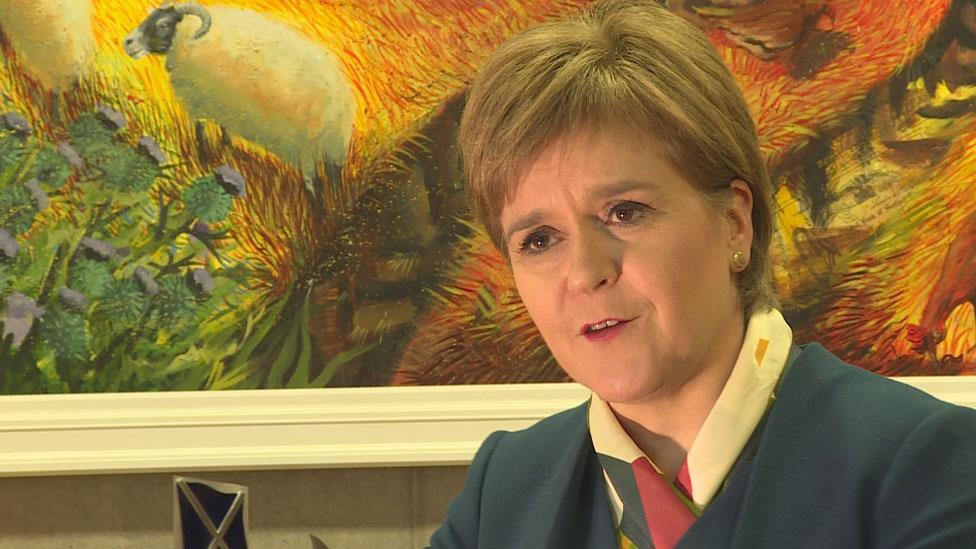Brexit and parliamentary power
- Published
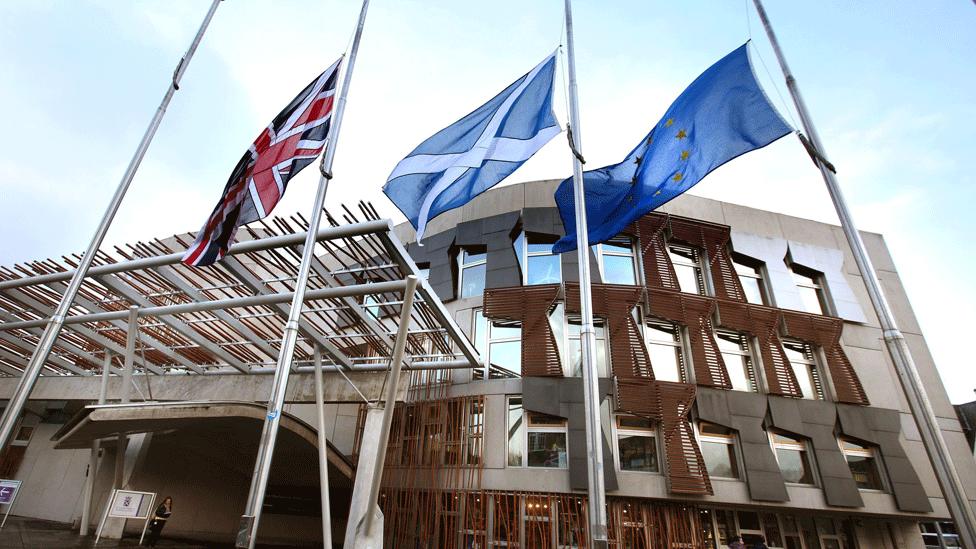
Holyrood's ability to speak up over devolved matters has been questioned over the court ruling
As mischievous politicians occasionally note, I have been covering Scottish politics for a wee while now. For example, I well remember the agonised discourse over "entrenchment" in the cross-party Constitutional Convention which paved the way to devolution.
The debate then centred upon the question of whether the Scottish Parliament, once established, could be protected against the potential depredations of a future UK administration which might be inimical to devolved power. Could it be saved from abolition?
I freely confess that I always believed that debate was futile. Westminster remains sovereign. One Parliament cannot bind its successors. So "entrenchment" was never, seriously, a runner, at least not in statutory terms.
In practice, the Conventioneers ended up suggesting that there be a declaration from political leaders that they wouldn't scrap the Scottish Parliament. Even this device, as I recall, was quietly forgotten.
Which brings us to the Sewel Convention. Whereby it is agreed that Westminster will not customarily legislate or intervene in issues which are the devolved domain of Holyrood.
Today's Supreme Court judgment, entirely understandably, goes into a myriad of details about the Brexit process. The process, note, not whether Britain should leave the EU.
However, the summary findings are admirably clear. The UK Government cannot rely solely upon Crown prerogative to trigger Brexit. They need endorsement from Westminster, both Commons and Lords.
Further, there is no legal requirement to consult devolved legislatures, such as Holyrood. That finding was unanimous, by contrast with the initial ruling on Westminster's role which was carried by eight votes to three.
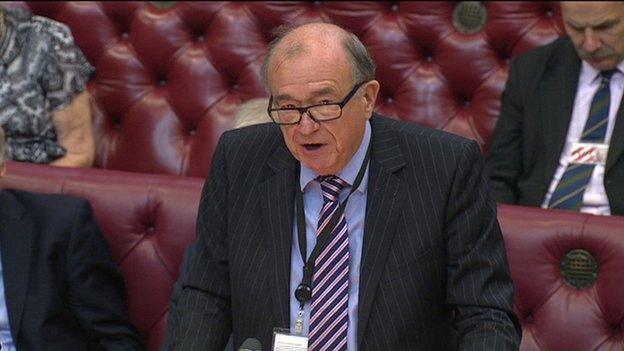
Sewel motions are named for Lord Sewel, pictured
Thirdly, anent Holyrood's wider role, as expressed through the Sewel Convention (named after Lord Sewel, the former UK Minister who first evinced it).
The Supreme Court confirmed that the Sewel Convention is just that: a convention. It is not justiciable. It is not a law which can be interpreted or applied by diktat of a court.
But hang on. Was it not the case that the Sewel Convention was placed in statute? In the 2016 Act which followed the 2014 independence referendum and the subsequent Smith Commission?
Yes but, according to their lordships, external, that merely formalised recognition of the Convention. It did not give it added legal force.
The relevant section of the 2016 Act says: "It is recognised that the Parliament of the United Kingdom will not normally legislate with regard to devolved matters without the consent of the Scottish Parliament."
Again according to their lordships, the clues are there. In the terminology "it is recognised" and "normally". That signals it is a convention, a principle to be pursued where possible. Not legally compulsory.
To be fair, this issue was debated at the time of the passage of the 2016 Act. Assurances were sought and, with caveats, given. The status of the new Sewel - now generally known as a Legislative Consent Motion or LCM - was questioned and challenged.
But political debate, much more concerned with the proposed new tax powers for the Scottish Parliament, fairly quickly trundled on to the next caravanserai, there to quench the collective constitutional thirst of Scotland.
Now the issue is back in the environs of today's ruling. And it has, again entirely understandably, prompted a range of responses, generally following the fault line of Scottish politics: independence versus the Union.
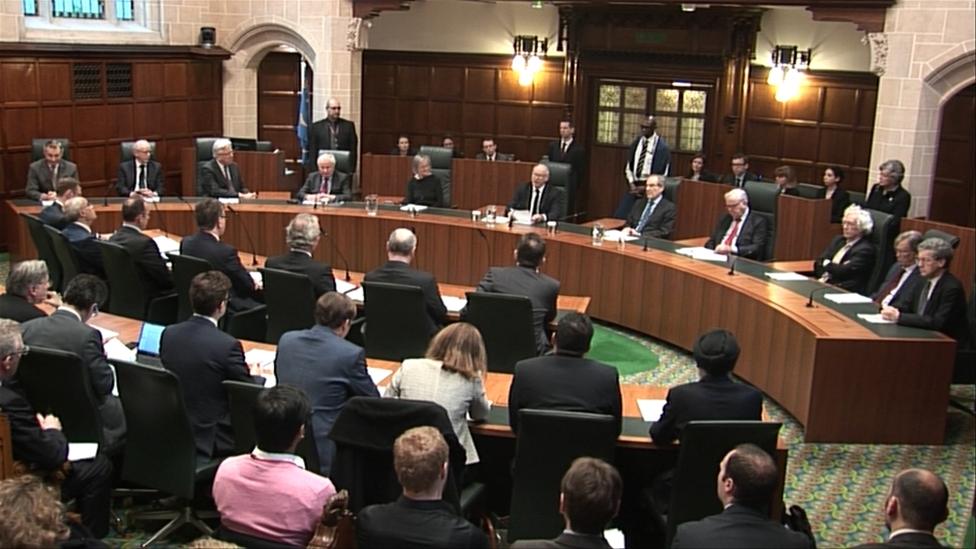
The Supreme Court judges voted by a majority eight to three to reject the UK government' case
Supporters of the Union accuse Nicola Sturgeon of seeking to prolong an argument about process in order to foster her standing demand for independence.
In return, Ms Sturgeon argues that today's ruling on Sewel brings welcome clarity. It is now becoming evident, she argues, that the people of Scotland cannot expect redress from the UK political system.
The time is "looming", she says, when the choice may once again be placed before the voters in Scotland. In short, indyref2. Remember my interview a week ago in which she agreed that such a development was now all but inevitable.
But we are not there yet. There are many elements to this remarkable debate yet, both over Brexit and its potential implications for Scotland.
Westminster wrangling
Firstly, what will the Commons do? The Conservatives will vote en masse for the rapid triggering of Article 50. They will do so either on the basis of firm belief or on the subsidiary count that it was their party which instigated the referendum and therefore they should facilitate the outcome.
Labour seems divided - partly over tactics, partly over support or otherwise for the EU. They are torn between a sense of internationalism and a fear that they will shed yet more public support if they go against the proletarian areas of England which voted Leave.
However, the leadership signals there will be a whipped vote for Article 50 and it is to be expected that most will fall in line. Some in Labour, indeed, have long distrusted the EU as a "bosses' club".
The Liberal Democrats remain firmly against Brexit - and want a further referendum on the outcome of talks.
And the SNP? They will not vote for Article 50, given that they take their mandate from the Scottish people, who voted Remain by a majority. But they will also table up to 50 amendments - if they can and if the Speaker permits - presumably seeking to mitigate Brexit as a fall-back. Or to prolong debate. Or both.
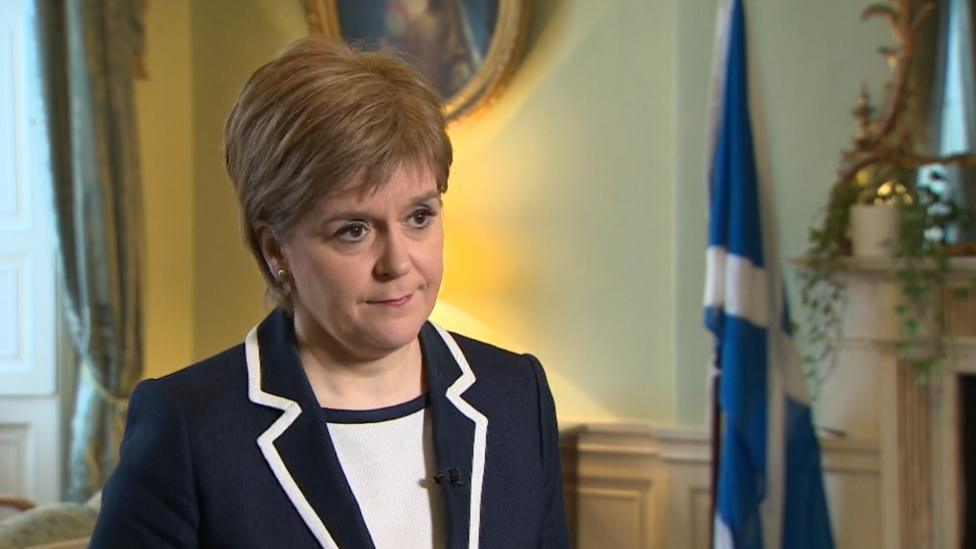
Nicola Sturgeon says she will keep pursuing a differentiated position for Scotland within the UK Brexit deal
Meanwhile the Scottish Government will pursue their case for a distinctive Scottish deal in discussions with the UK Government.
To be clear, David Davis, the Brexit Secretary, made plain that he was very far from closing his mind to such discussions. He would respect the role of the devolved legislatures and administrations, whatever the court said about their standing in statute.
But I do not detect any evident expectation - either at Westminster or Holyrood - that these talks will lead anywhere substantive.
UK ministers will want to be getting on with the process of securing a UK deal with the EU. Scottish ministers will continue to discuss, cajole and persuade. But there is minimal talk of progress.
Ms Sturgeon also says that there will be a vote at Holyrood on the fitness or otherwise of Article 50. It may not prove possible for that to be a formal LCM: that will depend upon the Presiding Officer's ruling once the planned paving Bill at Westminster is published and scrutinised.
But the PO's office rightly note that there are other avenues for expressing opinion, such as a generic debate.
Fundamental issues
Will that make much difference? Almost certainly not. UK ministers - including the prime minister - are adamant that they will take account of a diverse range of opinions, including those of MSPs and the Scottish Government.
However, today's Supreme Court ruling delineates precisely where formal, statutory power lies on the issue of reshaping Britain's relationship with the EU. Europe, as an issue, is reserved to Westminster along with foreign affairs more generally.
It falls to the UK Parliament to implement the expressed popular will of the UK as a whole. Quite right, say supporters of the Union, advising Ms Sturgeon to fall into step.
Which brings us back to the fundamental issue in Scottish politics. Ms Sturgeon does not accept a UK mandate but rather seeks the power to implement an independent Scottish mandate.
Two competing options, then. To repeat, it seems now very likely - perhaps indeed "all but inevitable" - that the people of Scotland will be asked, once more, which constitutional arrangement they favour.
- Published24 January 2017
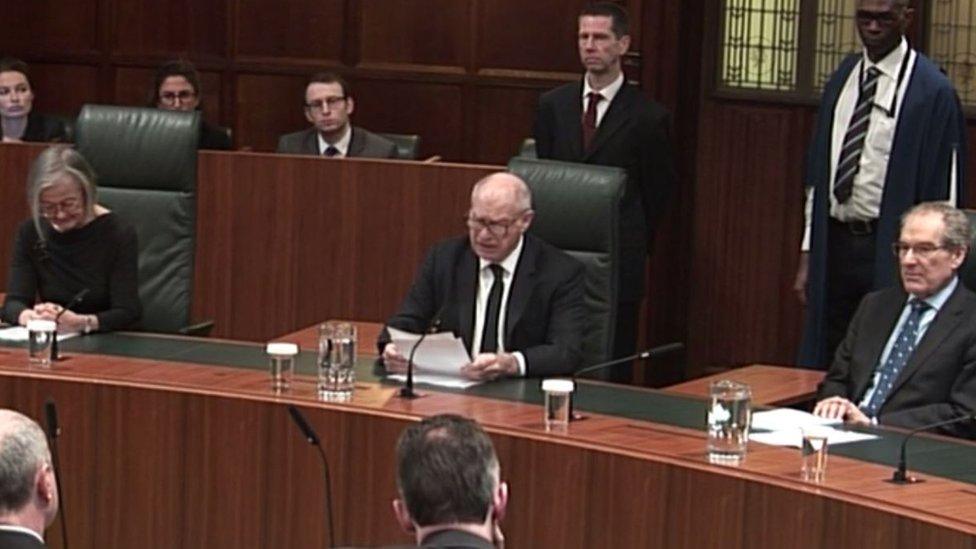
- Published24 January 2017
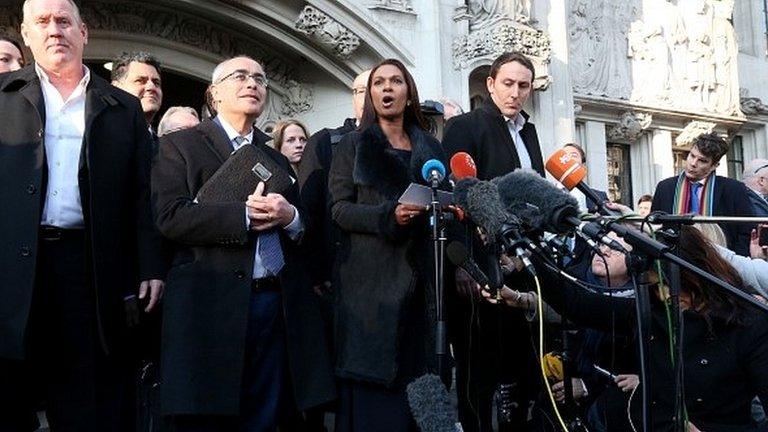
- Published17 January 2017
